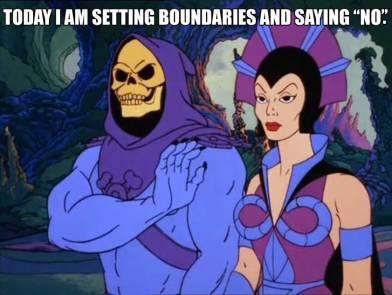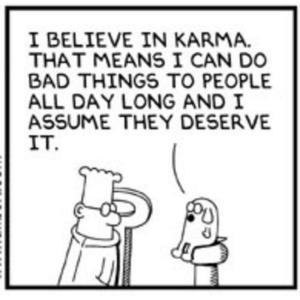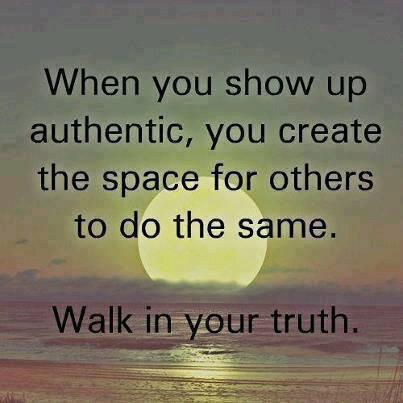“A consent culture is one in which the prevailing narrative of sex–in fact, of human interaction–is centered around mutual consent. It is a culture with an abhorrence of forcing anyone into anything, a respect for the absolute necessity of bodily autonomy, a culture that believes that a person is always the best judge of their own wants and needs.”
~ The Pervocracy
Consent.
One of the reasons I am so passionate about promoting Consent Culture is that I spent so much of my life ignorant of it. No one taught me what respect for another persons sovereignty and boundaries was or looked like. The models for relationship I grew up with were based on control, manipulation, and on ownership dynamics.
As I became involved in the poly scene I began to hear catchphrases like “Only Yes Means Yes”, but I still didn’t get it, not until someone asked me to talk about the rules of consent at a large event. When I sat down to think about what consent means to me, I became painfully aware of how many times, in connecting intimately with others, I had overlooked whether I had their consent or not- and also how often I had gone along with something because I didn’t know it was okay to say no. I realized that with every instance, that relationship where consent had been absent was one that became toxic, filled with drama, and ultimately disruptive and destructive for everyone involved.

Whether we are conscious of it or not, when our right to non-consent is violated or ignored, it effects us. We can attempt to rationalize it as “Well, I put myself in that situation”- but rationalizing it is not okay. We can want so desperately to feel a Yes (because we think it means we are desirable or popular or loved) that we ignore the loud screaming No coming from deep within ourselves. And it is hard to come to terms with having done to us- or even doing to others- something which did not have explicit consent.
When we sacrifice our sovereignty to placate or please others, something damaging happens to us: we learn that it’s okay to ignore non consent. We become part of perpetuating that culture of kyriarchy and control. And the problem is, this cycle of non consent has been going on for eons; for as long as we have record of human interactions we have tried to dominate and control one another.

Spiritualists might say “Oh this must have been my Karma,” or “Oh well, that was that person’s Karma,” but in my opinion that is a dangerous attitude, and one that reeks of Spiritual Bypassing. As a consequence of attitudes like this, abusers, misogynists and rapists often find too easy a home within spiritual communities- leading to the perpetuation of outdated gender stereotypes in an environment where people should be looking beyond them. At its core, no matter what your approach, Spirituality looks to encourage the growth of the soul, to improve the human condition. The most significant thing we can do to that end, I believe, is to no longer accept the perpetuation of tyrannical attitudes of ownership and control, and to replace those with a cooperative structure based on consent and communication.
One of the most important steps to being able to embody Consent Culture is nurturing authenticity within ourselves. If we are afraid to be ourselves, afraid to voice authentically who we are, what we are, what we are comfortable and uncomfortable with- then we are hindered in our ability to give or refuse consent. We have to nurture authentic dialog with ourselves- something that I know I personally found very challenging during the days when I was partying and drinking excessively.
“Among those socialized as girls, however, there’s an often particularly extra-strong need to be nice, to put others’ needs before your own, and to follow the unwritten expectation that you must be compliant and self-sacrificing to be of value… Don’t rock the boat. Don’t talk back (especially to men). Be humble. Be accommodating. Put others before yourself. Be compliant…”
~ Marcia Bazcynski, The Good Girl Recovery Program
I experienced difficulty trusting one woman I dated a few years ago. We tried to stay friends after we broke up, but I kept finding myself being triggered by her behavior, and it is only recently that I have understood why. This woman was very concerned with pleasing others. She would wear a mask of amicability, endeavor to preserve status quo- even around people who she disliked and who triggered her. She was afraid to do something wrong or out of place around me- but never voiced those concerns to me until long after we had broken up. Some part of me recognized this pattern of trying to be pleasing and accommodating to others- because my mother had been very similar.
My mother disliked a lot of social conventions, and yet would go above and beyond to placate others with what she thought they wanted or needed. Often complaining about the society she was trying to please, my mother was a master of self-sacrifice. And in turn, she put the expectation on to me to please others, put others first, and to be humble and self-deprecating about it. I realize now that this is part of the mechanism of a phenomenon called “The Good Girl”. As a consequence of the dynamic between my mother and I, I find I have an inherent intolerance of inauthentic behavior- and that if, during the early experiences of getting to know someone (as was the case with this woman I dated) they never expresses a “No” to me, it becomes very difficult to trust that their “Yes” is anything more than just telling me what they think I want to hear.

One of the most significant things we can learn is how to hear, accept, and respect a “No”. And I don’t just mean in a sexual context. In any context. If we are unable to respect the individuality and autonomy of those around us, and dismiss another person’s “No”, potentially even arguing with them about it, we are still buying into that paradigm that says it’s okay for us to attempt to manipulate, control, and direct the decisions of others. Consent is absolutely the most important aspect of any relationship.
On New Year’s I had a great experience with consent. I was at a house party, in a ‘cuddle puddle’ with a few people- some of whom I had met that night, some of whom I already knew. There was a lot of kissing going on in this cuddle puddle. I found myself curious about one woman in particular and- well, I don’t remember how it began, but at some point, I think I started it and asked if I could kiss her. She said yes. Then she asked if she could kiss me. Yes. Then I asked if I could touch her body. Yes. She asked if she could touch my thighs. Of course. She said she liked spanking: could I spank her? Yes please. I was curious about scratching: could she scratch me? Maybe a little. Was that too hard? No. And on it progressed. It was one of the sexiest consent-fueled first encounters I’ve ever had with anyone.
I learned that night that Consent really is that ‘easy’. It’s about respecting that everyone has different boundaries, and making no assumptions about what those boundaries are. Consent isn’t time consuming- it’s sexy, and empowering, and takes a heck of a lot of guess work out of things. There’s no more silent questioning, “Are they enjoying this?” because you become comfortable with simply asking if the other person is enjoying the experience. There’s no trampling over someone’s comfort zones- rather, you get to gently glide to the edges of where you are each willing to explore. And when done right, it can build the anticipation ten fold.
It’s taken me time and practice to get comfortable with asking for consent and giving consent or non consent, but I think I get it now. It starts with a dialog with yourself. Next time you are going on a date, or to a party- what do you give yourself permission to do, and to not do? What will you be comfortable with, and uncomfortable with, and with whom? Knowing our own boundaries, becoming intimately familiar with our own “Fuck Yes!” and our “Hell No” and the “Maybe”, we equip ourselves to be in a better position to both ask for, hear, and express consent and non-consent.

There is strength in abandoning the masks and living authentically. We have to be the change we want to see in the society around us; living in our own truth, and being generous with our authenticity, is one of the most radical, most transformational practices we can engage with.
So, whether you’d like to buy someone a drink, or you would like to put a balloon sculptured animal on their head and serenade them with free-styled Klingon rap- always ask, never assume, and then respect whatever their answer is.
The bottom line is this: consent begins with knowing what we want, and don’t want, and maybe want- and articulating it, knowing that others have things they want, don’t want, and maybe want too- to listen to them articulating it, respecting where those wants don’t overlap- and daring to dive in and explore where they do.

